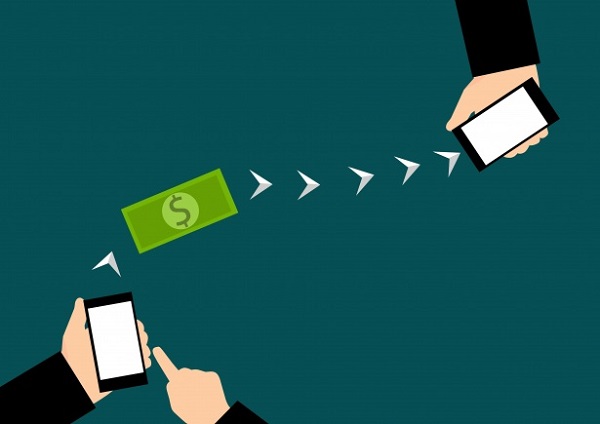Not very long ago, people saw a meteoric rise in the value of a virtual currency called Bitcoin. By investing in it, they became millionaires overnight. Suddenly, everyone wanted to own some and others were skeptical about its permanence as they thought that the bubble can burst like that of Dotcom and Tulips.
Just like these two historical events, ever since it made it big, several leading bank executives have termed Bitcoin as a “Bubble” because of its sharp rise by a fundamental margin. Its value reached its highest point in December 2017 at $19,498.63. Moreover, major exchanges such as the CME Group and Cboe Global Markets, are about to launch bitcoin futures exchanges.
Nevertheless, it is not just the steep growth that makes the news; the value of the fastest-growing cryptocurrency was halved from November 2014 to January 2015, and it crashed in December 2017.

Image Source: https://99Bitcoins.com/price-chart-history/
In an expert roundup on Business Insider, Tom Lees, who’s a managing partner at Fundstrat Global Advisors, revised his mid-2018 Bitcoin forecast. He increased it to $11,500 from $6000.
Does this mean that the Bitcoin bubble is on its way to the big burst? We guess not, because it just makes Bitcoin akin to any other volatile purchase vehicles and hence, it is a territory that needs to be treaded carefully. Having said that, let’s take a look at the risk factors that everyone intending to invest in the cryptocurrency should be aware of:
Risk #1: Limited supply of the cryptocurrency
Unlike any other centralized banking system, Bitcoin is decentralized in nature. It is more like gold whose underlying store of value cannot be affected by currency production. And even if central banks create derivatives based on Bitcoin, people can always buy it directly. However, the cryptocurrency’s value depends on trading and remains highly volatile as there will be only 21 million Bitcoins that can ever be produced. This is where you need to tread carefully.
Risk #2: The alarming rate of transfer fee
Currently, the transfer fee for purchasing Bitcoin is not expensive enough to change the market price of the currency. However, looking at the mushrooming growth rate, the time is not far when the transfer fee is going to be bigger proportionately. This can be a factor for worry, if not risk as you’ll also have to think about shelling out a huge transfer fee along with the increased value of the coin.
Risk #3: You could be dealing with criminals unknowingly
All sorts of credit charges and other relevant details are supposed to pass through a third party and this this creates a traceable trail. Bitcoin transactions do away with such trail and instead all your transaction information creates a block in the blockchain. This block of data is public and can be read, seen by all those in the chain. Hence, all the transactions that take part in a blockchain will remain public for sure. What remains anonymous here are the identities of the buyer and the seller. It stays shared by them only instead of all the middlemen.
As long as these exchanges happen over-the-table and for legal transactions, it is not going to be problematic. The catch lies in unknowingly entering a digital transaction or an agreement with a criminal party.
Moreover, there are several illegitimate reasons to purchase Bitcoin, which is leveraged by tax evaders and people who want to avoid the rules and regulations that dictate fiat currencies. You cannot rule this risk out, bubble or no bubble!
Risk #4: Only a small number of people exercise control
The next risk associated with cryptocurrencies such as Bitcoin is that the market control remains in the hands of a small group. For instance, about 1000 people hold almost 40% of all the Bitcoins. And let’s not forget the fact that only a certain number of Bitcoins can be mined. These “whales” are big dampeners to your plans because they can choose to sell their stock of Bitcoins to make the most of the high market prices. Sometimes, the whales can go ahead and coordinate between themselves in order to make the market fluctuate. The uncertainties are real and the laws concerning cryptocurrency are not accurate.
Risk #5: Cryptocurrencies are getting banned by institutions and countries
A number of major international banks are banning Cryptocurrency purchase using credit cards. You can still purchase the coins by using your debit cards though. As more banks join the bandwagon, several countries are also making the virtual coins illegal.
For instance, if you trade in Bitcoin or other alt coins in Bangladesh, you can be punished and receive a sentence of up to 12 years in prison. The central bank of Bolivia went on to release a statement that said, “It is illegal to use any currency that is not issued and controlled by a government or an authorized entity.” China, which has become of the largest Bitcoin trading market in the world, there’s a ban but that remains strictly on banking institutions and employees. There’s also a ban on engaging in Bitcoin businesses via banking or dabbling in any business or service associated with the Bitcoin industry. However, trading or mining Bitcoins is not considered as illegal for the citizens.
The key takeaway here is that transaction using Bitcoin remains largely anonymous. This makes it a potential tool for criminals who dabble in illegal acts such as tax evasion, drug trafficking and money laundering to name a few.
Risk #6: Insecure ICOs or initial coin offerings
Cryptocurrency startups are all rage nowadays, with founders, CMOs and Chief are coming up with a wide range of startups that draw the users’ attention. It all started in 2017, investing in projects associated with a blockchain or cryptocurrencies became very popular among cryptocurrency holders. This type of fundraising is called an ICO — Initial Coin Offering. With a simple internet connection, you can be a part of cryptocurrency-based firms or startups. The problem is that this market is on its own with no regulation. The risk assessment mechanism, productivity and guarantee are some of the things you need to see before jumping into one without a second thought!
Risk #7: Possible attacks on exchanges
Bitcoin exchanges are not safe anymore. With major attacks on the exchanges, the value of the cryptocurrency may falter. Take the instance of Mt.Gox, the heist of which made them lost 850,000 coins. The value of these coins after four years runs into billions. It never recovered from the attack of this scale and went bankrupt. The exchanges are also threatened by DDoS attacks.
To conclude
At present, we cannot tell for sure that whether the complete bubble is going to burst or whether blockchain will continue to rule the industry. What we do know is that even though the price tag of the cryptocurrency is enough to knock your socks off, awareness is the only thing that will save you from its potential risks. And like other investments, this is a risk that you can and should take to see where it takes you!























